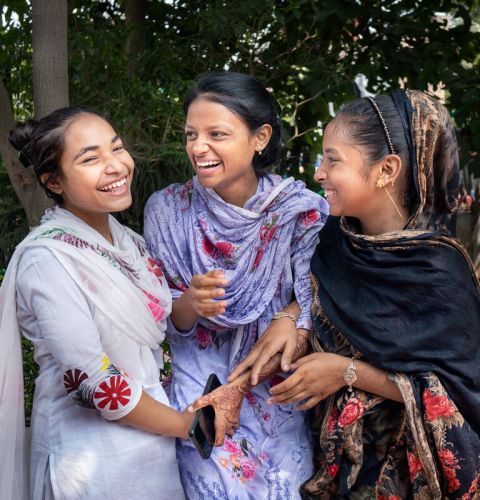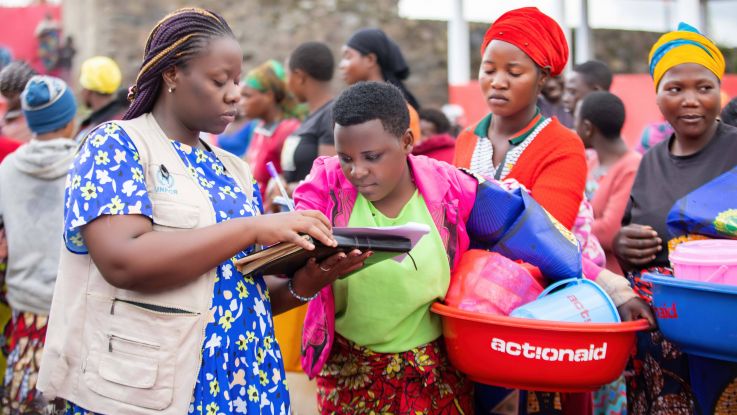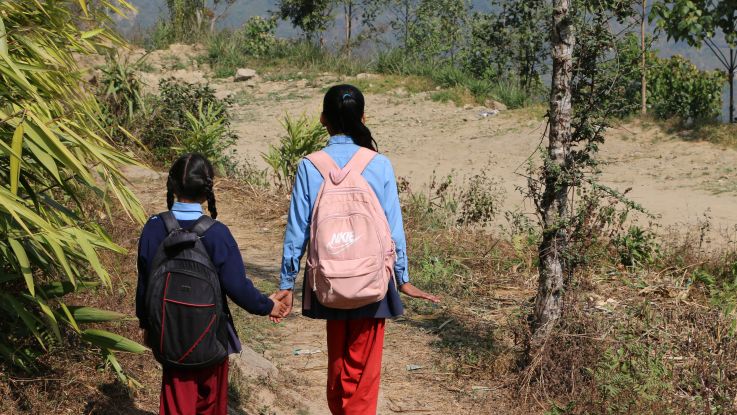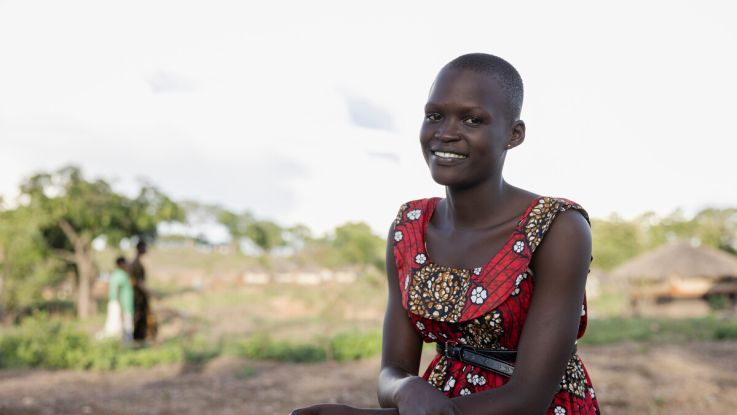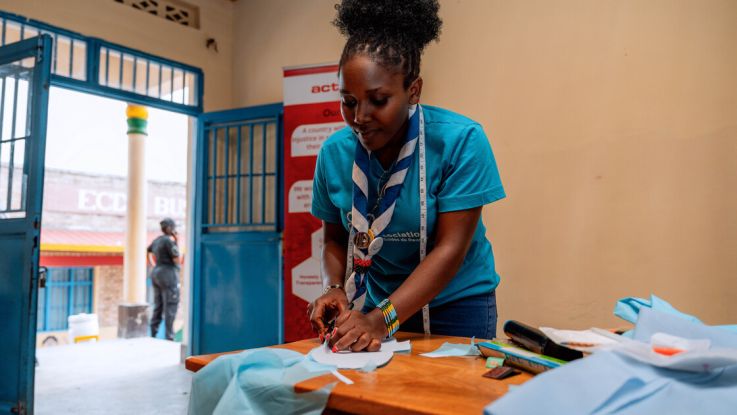Period poverty
1 in 10
girls in Africa miss school because they don’t have access to menstrual products, or because there aren’t safe, private toilets to use at school.2
65 %
of school-age girls in Kenya do not have access to menstrual products.3
12 %
of India's 355 million menstruating women cannot afford menstrual products.4
What is period poverty?
Period poverty is a global issue affecting those who don’t have access to the safe, hygienic menstrual products they need, and/or who are unable to manage their periods with dignity, sometimes due to community stigma and sanction.
It doesn't just refer to those who have no access to menstrual products; in some cases, limited access to these products leads to prolonged use of the same tampons or pads, which can cause infection
Around the world, consequences of period poverty can include:
- Girls often miss one or more days of school during their periods, which negatively impacts their education. According to a 2014 UNESCO report, in Sub-Saharan Africa, for example, some girls will miss as much as 20% of their school year; some may drop out of school altogether.5 The loss of education can mean girls are more likely to be forced into child marriage.
- There are serious health risks when people are forced to use dirty rags which can cause infection. Risks can be greater if the women or girl has undergone female genital mutilation (FGM).
- Due to community stigma, some may feel persistent shame and fear during their periods,6 and in some cases face social sanctions.
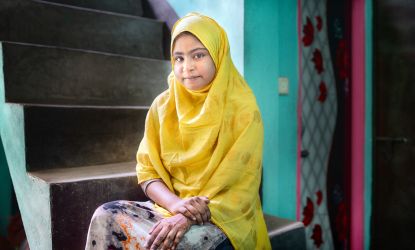
Breaking the silence around period poverty
At just 16, Mim is helping girls in her community in in Narayanganj, Bangladesh talk openly about menstruation and demanding safe, affordable access to pads in schools.
Mim is a member of a girls’ research group supported by ActionAid. After receiving training on child marriage, menstruation and child labour, she helped lead a girl-led research project speaking to 76 girls about their health, safety and daily challenges.
Through the research, Mim discovered how deeply period poverty affects girls in her community. “Some girls cannot afford sanitary pads because of their parents’ poverty,” she explains. “They use old clothes instead and fear what people think when they dry them in the sun.”
Mim now shares practical advice with other girls on how to safely wash and reuse cloth. “It is not a bad thing and there’s nothing to hide,” she says.
She is also advocating for menstruation booths in schools, where girls can buy low-cost pads. “It is very important… so we can study in school and buy pads when needed.”
Now I am brave enough to know that we girls can do anything.”
Mim, 16, along with other girls took part in ActionAid supported training on child marriage, menstruation and child labour and led a research project to explore the realities faced by adolescent girls.
Fabeha Monir/ActionAid
How ActionAid tackles period poverty
- In many of the world’s poorest countries, we provide training on how to make reusable sanitary pads, which are affordable and sustainable.
- We support girls' clubs where girls learn about their bodies, menstruation and health, build confidence and come together to advocate for their rights. We also support girls' rooms in schools, which provide a safe, private space and access to products, helping girls manage their periods freely and without shame.
- In humanitarian crises, we distribute kits containing menstrual products, soap and clean underwear, so women, girls and people who menstruate can manage their periods safely and with dignity.
- And we’re working with communities to shift attitudes and end the stigma that harms women and girls.
Where can I donate sanitary pads?
We often receive generous offers from our supporters to donate surplus menstrual products to the communities we work in around the world.
ActionAid always tries to source menstrual products as locally as possible - sourcing goods in this way helps us to cut down on costs, while ensuring the items we provide are appropriate for the local environment and culture in the countries where we work.
This not only supports the local and national economy but also facilitates a more efficient response, as it means we don’t have to depend on regional postal systems.
For this reason, although we are very grateful for these kind offers, we are unable to accept donations of menstrual products in the UK. We would recommend products of this kind be donated your local food bank or a specialist organisation like the Hygiene Bank.
If you'd like to support our work ending period poverty in rural and urban communities across Africa, Asia and Latin America, please donate today.
Footnotes
- 1https://www.worldbank.org/en/topic/water/brief/menstrual-health-and-hygiene
- 2https://blogs.worldbank.org/en/education/menstrual-health-and-hygiene-what-role-can-schools-play
- 3https://openknowledge.worldbank.org/server/api/core/bitstreams/a92f6ee5-e932-4dcd-ac8d-aaeb319a72f7/content
- 4https://documents1.worldbank.org/curated/en/497961622035770181/pdf/Tools-and-Resources-for-Task-Teams.pdf
- 5https://blogs.worldbank.org/education/globally-periods-are-causing-girls-be-absent-school
- 6https://pmc.ncbi.nlm.nih.gov/articles/PMC10021325/
Page updated 16 February 2026
